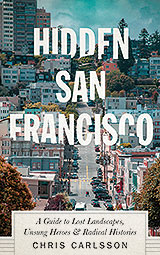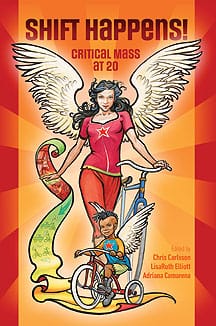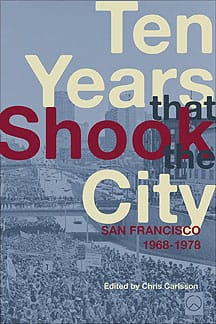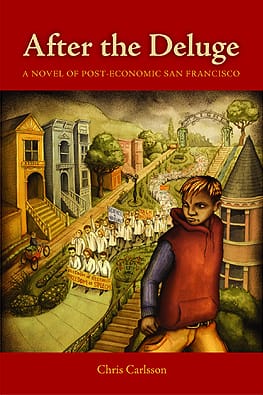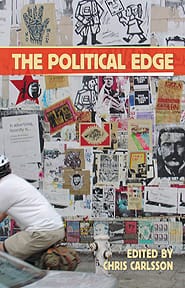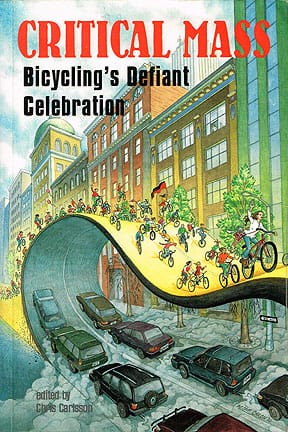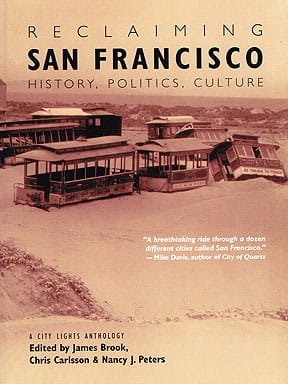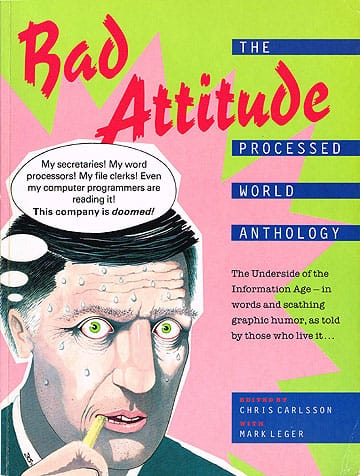Been out of the blogging mood for a couple of weeks. Partly it’s getting glued to the news from New Orleans (my friends Natasha and Todd went down to the Algiers neighborhood with dough and their skills and are helping at the Common Ground medical clinic) and partly it was just a rocky couple of weeks at home.
Anyway, I read Kim Stanley Robinson’s Forty Signs of Rain, the first of his climate change trilogy. It’s up to par in terms of writing and plot but felt incomplete. Like he figured to keep most of the story for the later volumes. So I’ll reserve judgement until I get the rest of the series. Definitely a lot more down-to-earth (literally) than the Mars trilogy, or even Antarctica, and not nearly the tour de force that Years of Rice and Salt is (that’s got to be one of the best, if not THE best speculative alternative history ever written!).
The bigger effort was forging through the remarkable Multitude by Michael Hardt and Toni Negri (H&N). On other lists that I’ve read for a while, these guys get beat up all the time, and my pal Eddie assures me that the Italians are full of piss and vinegar about what’s wrong with this book. But as far as I’m concerned, this is a really important book that advances our thinking about what’s happening in the world at this time. It is fundamentally a philosophical book and makes no bones about being programmatic or a how-to-change-the-world manual. Nevertheless, probably due to Negri’s long involvement in the left going back to the 1960s, there’s inevitably a pretty strong twinge of telos here. Taking their sweeping analysis of the new shape of social opposition, which they characterize as the “multitude,” and their urgent and earnest excitement at the many connections they’ve been able to draw to bolster their views, it’s hard not to get a dose of their optimistic confidence in the direction of history (though they specifically reject any automatic-ness to their view of the flow of history and readily concede the possibilities can go in many directions).
“We do not propose the concept as a political directive– “Form the multitude!” –but rather a way of giving a name to what is already going on and grasping the existing social and political tendency… The multitude is created in collaborative social interactions… the single grammatical formulation “multitude,” emphasizes for us not any unity but rather the common social and political capacity of the multitude.” p. 221-23″This is the definition of the multitude we started from above: singularities that act in common… The multitude from this perspective is based not so much on the currrent empiricial existence of the class but rather on its conditions of possibility. The question to ask, in other words, is not “What is the multitude?” but rather “What can the multitude become?”
p. 105
I knew nothing about a centuries-old argument carried out by Hobbes in Leviathan against the threatening concept of the multitude. But H&N go over the old territory because it turns out that the arguments that were extant back in the 1600s have new resonance in today’s world. H&N’s argument ultimately hinges on an explanation of, and then rejection of, the concept of sovereignty. The arguments made by Hobbes in the wake of the English Civil War and Spinoza after being involved in Germany’s 30-year war were in favor of stabilizing society by organizing war and violence through the legitimacy of sovereign power, a power that by definition had to reside in one final authority, either the monarch, the “people” or the state. H&N trace the arguments through the American and French revolutions to show how the creation of modern nation-states was achieved by both embracing democracy and making sure that it was never fully implemented. By creating systems of representation, and claiming to represent the false unity labeled “the people”, real democracy was actually put on hold.
But it’s an important thread for them, because their book is divided into three sections, War, Multitude, and Democracy. By the time we get to the last section on Democracy, we are as close as we’re going to get to their view of what is worth fighting for and how it fits together with their cogent analysis of the global war system, and the emerging counter-power of the multitude.
Of course if you read the book you’ll find that they do a fine job of building their argument up piece by piece. The odd jargon they use” beyond the title itself” such as “biopolitical” or “biopower” (also developed in their previous book Empire) is frustrating at first, but I think it’s helpful to try to name things with new language when we are trying to describe and analyze radically new social relations. Perhaps the most refreshing thing about Multitude is that they are standing firmly on the shoulders of theoreticians that precede them (Spinoza, Marx, Deleuze, Foucault) but really take things to a new place.
I have been working on a new book that is trying to take a fresh look at class dynamics in a way that sheds the baggage of both 20th century assumptions about categories and the identity politics that arose alongside the slow disintegration of the old and new left. H&N manage to do it really well, but in a way that doesn’t fall into the trap of having to repudiate the important and necessary historical work done around race and gender, instead building on it and embracing it.
“Our focus on labor and socioeconomic class as basis for our analysis of the multitude can serve as a corrective to the relative lack of recent scholarship on class. We also noted that strong traditions of race and gender politics already contain a desire for the multitude, when feminists, for example, pose the goal as not a world without gender difference but one in which gender does not matter (in the sense that it does not form the basis of hierarchies); or when antiracist activists similarly struggle not for a world without race but one in which race does not matter” in short, a process of liberation based on the free expression of difference.” p. 224
The basis for their argument about the emerging multitude rests on their assertion that we have entered an era in which immaterial labor has become the dominant form, and that it is changing all types of work, and crucially, how we think about work and life. Workers are inherently producing an increasingly common way of life, one based on cooperation and communication.
“The contemporary scene of labor and production is being transformed under the hegemony of immaterial labor, that is, labor that produces immaterial products, such as information, knowledges, ideas, images, relationships, and affects. This does not mean that there is no more industrial working class whose calloused hands toil with machines or that there are no more agricultural workers who till the soil. It does not even mean that the numbers of such workers have decreased globally. In fact, workers involved primarily in immaterial production are a small minority of the global whole. What it means, rather, is that the qualities and characteristics of immaterial production are tending to transform the other forms of labor and indeed society as a whole.” p. 65″What is immaterial is its product… labor that creates not only material goods but also relationships and ultimately social life itself… Immaterial labor constitutes a miniority of global labor, and it is concentrated in some of the dominant regions of the globe. Our claim, rather, is that immaterial labor has become hegemonic in qualitative terms and has imposed a tendency on other forms of labor and society itself. Immaterial labor, in other words, is today in the same position that industrial labor was 150 years ago, when it accounted for only a small fraction of global production and was concentrated in a small part of the world but nonetheless exerted hegemony over all other forms of production. Just as in that phase all forms of labor and society itself had to industrialize, today labor and society have to informationalize, become intelligent, become communicative, become affective.”
p.109
“In general, the hegemony of immaterial labor tends to transform the organization of production from the linear relationships of the assembly line to the innumerable and indeterminate relationships of distributed networks. Information, communication, and cooperation become the norms of production, and the network becomes its dominant form of organization… The central forms of productive cooperation are no longer created by the capitalist as part of the project to organize labor but rather emerge from the productive energies of labor itself. This is indeed the key characteristic of immaterial labor: to produce communication, social relations, and cooperation. The hegemony of immaterial labor creates common relationships and common social forms in a way more pronounced than ever before.”
p. 113
“This is not to say that the conditions of labor and production are becoming the same throughout the world or throughout the different sectors of the economy. The claim rather is that the many singular instances of labor processes, productive conditions, local situations, and lived experiences coexist with a “becoming common,” at a different level of abstraction, of the forms of labor and the general relations of production and exchange” and that there is no contradiction between this singularity and commonality. This becoming common, which tends to reduce the qualitative divisions within labor, is the biopolitical condition of the multitude.”
p. 114
“The becoming common of labor, on the one hand, and the production of the common, on the other, are not isolated to software engineers in Seattle and Hyderabad but also characterize health workers in Mexico and Mozambique, agriculturists in Indonesia and Brazil, scientists in China and Russia, and industrial workers in Nigeria and Korea. And yet the new centrality of the common does not in any way diminish the singularity of the various situated subjectivities. This coincidence of the common and singularities is what defines the concept of the multitude.”
p. 308
Multitude dovetails interestingly with Jonathan Schell’s The Unconquerable World that I briefly mentioned in a previous entry. Schell argues that the war system as he analyzes it from Clausewitz to the present, paralyzed by the nuclear Mutually Assured Destruction and undermined by the logic of people’s war, has reached an impasse. War is no longer a political means to an end, and instead its logic has become all-devouring. Once war starts, there’s no stopping it. H&N analyze the same world, and see global war as a symptom of the new regime they call “Empire” trying to be born. Not blinded by their own earlier volume’s analysis (which was published before Sept. 11, 2001) they can see that the US is attempting to impose a virtual monarchical system of command on the planet, but they think it will inevitably fail. Like Schell, they see the emerging social movements that appeared most dramatically at Seattle in 1999, and then much larger and global in scope in Feb. 2003 protesting the imminent invasion of Iraq, as a worthy (if still in formation) counter power to any attempts to rule the world. H&N go a lot further than Schell does though, since they see these new movements as much more than “merely” for peace, but rather as social forces emerging from the new shape of how daily life itself is reproduced. They also have no particular interest in pacifist theories or practices, unlike Schell who admires them and gives them a moral weight that only a committed liberal can give.
What unites their respective analyses at a fundamental level is their mutual appreciation for the power of daily life, the densely knit networks of human communities and desires that are the greatest obstacle to the war system. In the case of H&N, it is the daily life at the base of all societies that will eventually emerge in a real democracy to displace the sovereignty that defines itself increasingly militarily.
“The vast majority of our political, economic, affective, linguistic, and productive interactions are always based on democratic relations. At times we call these practices of social life spontaneous and at others think of them as fixed by tradition and custom, but really these are the civil processes of democratic exchange, communication and cooperation that we develop and transform every day. If such democratic interactions were not the basis of our living in common, then society itself would be impossible. That is why for Spinoza other forms of government are distortions or limitations of human society whereas democracy is its natural fulfillment.” p. 311″What the multitude produces is not just goods and services; the multitude also and most importantly produces cooperation, communication, forms of life, and social relationships. The economic production of the multitude, in other words, is not only a model for political decision-making but also tends itself to become political decision-making.”
p. 339
I mentioned at the outset my friends who drove down to help out in New Orleans. This is where these seemingly abstract arguments and analyses suddenly have practical and urgent meaning. They’ve gone to participate in a grassroots, alternative, nongovernmental self-help/mutual aid effort. They are confronted by hundreds of soldiers and a bureaucratic and paranoid government that has no interest in helping anyone, least of all poor black people. Note the stark contrast between our ability to take care of ourselves and produce the life we want and ought to have and the government’s response, which has now become a one-note symphony of militarizing everything to set the stage for the enormous corruption and brutal indifference to follow (can you spell I-R-A-Q?). It’s as though the Cheneyites are following a playbook out of Multitude‘s critical analysis, trying to use force in the most obvious, blundering, inhuman ways to impose “control”. But in the end, as even a liberal like Jonathan Schell can clearly see, that kind of violent coercion is bound to fail. Even brutal sovereignty depends on compliance and willful cooperation. Without a substantial population of true believers who will put their heart and soul into bolstering the power of the state, it will eventually fall. Insofar as we create meaningful, inspiring alternatives on our own, the state becomes increasingly irrelevant. If it weren’t for its control over so much firepower, it might even just wither away!
Unfortunately, a review like this cannot really do justice to the many nuanced arguments carefully presented in Multitude. Quotes give you a taste, but if you find them unconvincing or incomplete I really urge you to pick this book up and give it a careful read. It’s well worth it. The last piece I’ll quote from it speaks again to the necessity of turning the logic of militarism on its head as we contemplate our future revolutionary changes. It echoes an argument I’ve made many times with respect to Critical Mass: that pleasure is our best weapon, pleasure is more subversive than anger and recrimination.
“What the revolutionary imposes, however, is not so much the pure coherence of force but rather the insistent mechanism of desire. The force that the revolutionary organizes and imposes does not appear at the beginning but only at the end of the process: revolutionary realism produces and reproduces the becoming and proliferation of desire.” p. 356



